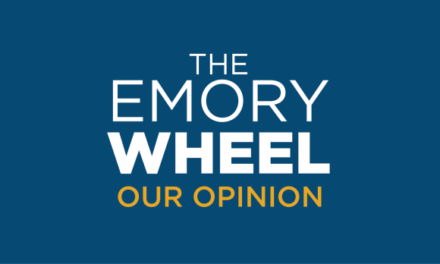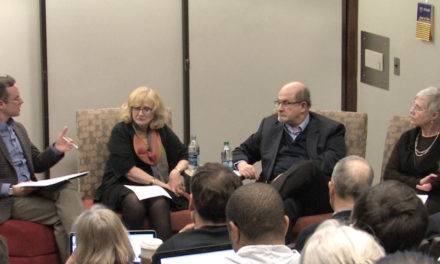In response to the COVID-19 pandemic, Emory opted for an expedited fall semester without academic breaks. That decision has exacerbated the existing student mental health crisis to an alarming degree. As the University plans for the spring, we urge the administration to incorporate additional break days, reading days or long weekends into the upcoming semester to forestall mental burnout.
Students are struggling to balance online classes and their mental health — many typical stress mitigation strategies, such as socializing and exercising, are inaccessible. The fast-paced semester has placed a heavy burden on Emory students as we struggle to maintain the same level of focus and motivation necessary for academic success. Social isolation has compounded those difficulties, invariably causing increased stress at best and severe mental health issues at worst.
Distance learning has trapped students within the confines of their living spaces and their minds to an unhealthy degree. This is more than a mere inconvenience; studies show that students have become more likely to experience depression and anxiety as a result of isolating public health measures. Further, as winter approaches, so does seasonal affective disorder, which experts predict will be especially difficult to manage this year. Flu season elevates the risk of COVID-19 and physical and mental health illnesses.
Online classes are substantively inadequate when compared to in-person classes, and they can even be more harmful to our mental health. Drexel University Professor of Neuropsychology Eric Zillmer, along with other experts, has formalized the new phenomenon of “Zoom fatigue.” As Zillmer describes, Zoom fatigue is the increased difficulty of exhaustion from gleaning information and social cues from a two-dimensional platform, which, consequently, tires us faster and hinders our focus. Along with other technological and internet difficulties, Zoom fatigue has made this semester grueling.
The University’s decision to abbreviate the fall semester has contributed to rising exhaustion. Ash Shankar (23C) attributed his burnout to “screen fatigue and the faster pace of the semester,” both of which “have really impacted [his] personal well-being.” The University’s decision to organize the semester without adequate time for students to decompress neglected their many hardships. Lennox Xu (23C) remarked, “since we’re online, every week is monotonous and it feels like a constant flow of work without any sort of end.” To avoid this issue in the future, the University must prioritize students’ mental health by allocating breaks throughout the spring.
As an additional stressor, international students must often deal with time differences of seven, nine or even 12 hours. Nadine Jarrar (24C), who lives in Jordan, a country which is seven hours ahead of Atlanta, stated, “I am so in sync with Emory and not as in sync in real-time with Jordan. My sleep is absolutely flopped as I am awake during most of the night hours and asleep during most of the day.”
The overlap between Zoom fatigue and time difference-induced sleep disruption can also heighten academic anxiety. Tanvi Rudraraju (23C), who currently lives in India, noted, “I barely ever get a full night of sleep, and this has taken its toll on my health, both mental and emotional.” Trying to attend class, office hours and club events to feel like a part of the Emory community is an extremely tall order for international students. Online classes and time differences are stressful enough by themselves, but it is untenable to endure them continuously for months.
During a normal academic semester, students already experience high levels of fatigue, anxiety and depression. Amid the pandemic’s added tribulations, students are drowning like never before. Instead of a semester that accounts for these extenuating circumstances, we have experienced a fast-paced rollercoaster completely devoid of breathing room.
We are in the middle of a pandemic. People are isolated, despondent and dying. This is not normal. As such, Emory must include academic breaks in the upcoming spring semester to alleviate the consequences of Zoom fatigue, deteriorating mental health and burnout. If the University cares about our well-being, the answer is clear: give us a break.
The above editorial represents the majority opinion of the Wheel’s Editorial Board. The Editorial Board is composed of Sahar Al-Gazzali, Brammhi Balarajan, Viviana Barreto, Rachel Broun, Kemal Budak, Jake Busch, Sara Khan, Demetrios Mammas, Meredith McKelvey, Sara Perez, Ben Thomas, Leah Woldai and Lynnea Zhang.
The Editorial Board is the official voice of the Emory Wheel and is editorially separate from the Wheel's board of editors.





